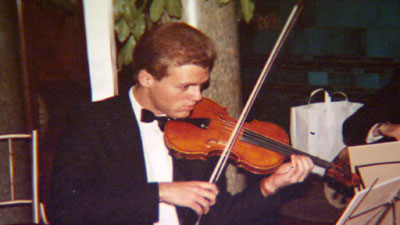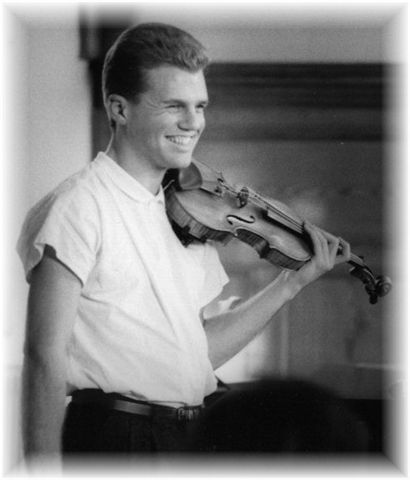Published by Dale & Co
 It was the beginning of another academic year. I was in the staffroom, at the end of the usual sort of frenzied and frantic day which usually greets the first weeks of a new term. The Head came in and mumbled something, but I didn’t take any notice. No-one else seemed to. I was immersed in a sea of admin, data and trivia – student lists, text books, timetabling and staffing. As I gathered my bags to leave, I over-heard one of the English teachers refer to ‘an act of war’, but I assumed he was immersed in Wilfred Owen or Siegfried Sassoon or some such, so before I could become embroiled, I darted out to my car. It was sunny and still quite warm: a hint of Indian summer. I had a chilled bottle of wine waiting for me. I liked going home.
It was the beginning of another academic year. I was in the staffroom, at the end of the usual sort of frenzied and frantic day which usually greets the first weeks of a new term. The Head came in and mumbled something, but I didn’t take any notice. No-one else seemed to. I was immersed in a sea of admin, data and trivia – student lists, text books, timetabling and staffing. As I gathered my bags to leave, I over-heard one of the English teachers refer to ‘an act of war’, but I assumed he was immersed in Wilfred Owen or Siegfried Sassoon or some such, so before I could become embroiled, I darted out to my car. It was sunny and still quite warm: a hint of Indian summer. I had a chilled bottle of wine waiting for me. I liked going home.
I turned on the radio to find some vacuous mood music, but there was none. Instead, as I drove out of the car park, I heard incomprehensible utterances: something about the Pentagon being hit. My mind hazed. I slowed at the junction and signalled left: something about the World Trade Center being destroyed. I paused at the traffic lights, turned up the volume, and listened.
I did that short journey from school a thousand times, with nothing but the wind and the rain to differentiate one day from another. But I can remember almost every minute of that quarter-hour on September 11th 2001 as if it were yesterday. As my gaze relaxed in the tranquillity of hedgerows and sunlit trees, my ears were besieged by what sounded like a dramatisation of ‘War of the Worlds’. The evil tripods had breathed their fire at civilisation, and the very existence of mankind was at stake. I drove a little faster.
When I got home, I turned on the television, sat in a chair, and stared. I don’t recall moving again: I didn’t eat; the wine went unopened. I just watched, over and over and over again, the mesmeric terror of two planes laden with hundreds of innocent people diving into skyscrapers filled with thousands more. Like the rest of the free world, I was in shock as I contemplated the image of that horror. But I could have had no idea, as I witnessed time and again the infernal demolition on a seemingly endless loop of rolling news, that I was watching a friend die.
I went into school the next day, and all the talk was naturally of Manhattan’s Armageddon. Since politics, philosophy and theology all converged in my faculty, every lesson was spent discussing potential reasons, possible motives, theo-philosophical significance and political implications. From Year 7 confusion to Year 13 revelation, it was one of the most demanding teaching days of my life. I was well used to debating with inquisitive teenagers what is pithily known in philosophical circles as ‘the problem of evil’. But Auschwitz was a universe away: New York suddenly felt as though it was just down the road. I recall getting quite angry with three Year 9 Muslim boys who had brought in a newspaper and found some amusement in the ‘falling man’ picture which was to become iconic. For some reason, they revelled in the sight of people leaping to their deaths from the burning towers, as though the eradication of every American were to the greater glory of Allah. Then, next lesson, I found myself consoling a Year 13 Hindu girl who had been verbally abused at work by a man who had ignorantly blamed ‘her sort’ for the atrocity. But I had no trite answers; no convenient political discourse or philosophical exposition. I recall telling all my students, prophetically, as it turned out, that the world would never be quite the same again: this was a seismic, historic, world-changing event. My task was to turn their heads towards the light, so they could see for themselves.
I went home that afternoon, eagerly seeking intelligence on further developments. As the evening wore on, I was probably only half-listening to the BBC’s Huw Edwards as he announced there had been a British victim on one of the planes: Graham Berkeley. I knew that name. But, no. It couldn’t be. Why would I assume it was Graham and not Graeme? Or Berkeley and not Barclay or even Berkley? There must be hundreds of them in their various etymological permutations. But then the Welsh inflections pronounced ‘Shrewsbury’, where we had both attended the Priory Grammar School for Boys. And I can’t remember the rest of the report. My impulse was to phone, but I’d lost touch some time ago. Although Graham and I were close school friends – ‘best friends’ for many years – our paths had gradually diverged. But the memories of those Priory days are etched on my mind. O, how we laughed! O, how we cried. His sharp intellect excelled in maths and the sciences, while I kept the edge in English and French. He was sociable and open-minded; I more introvert and wary. He was fit and joined the school’s rowing team; I was feeble and rubbish at sport, so became a cox. Wednesday afternoons floating on the River Severn were infinitely preferable to rolling around in rugger mud.
 The photograph above is pretty much as I remember Graham, doing what he loved doing. I was proud to be a friend and part of his little quartet (with Guy and Russell). I think our only separations in those formative years were his decision to take German while I opted for Latin, and his preference for the school orchestra while I immersed myself in school plays. The Priory choir was mandatory for all boys, and together we tackled Vivaldi’s ‘Gloria’ as altos, Mendelssohn’s ‘Elijah’ as tenors and Fauré’s ‘Requiem’ as basses. There were occasional cruel words, tears and fallings out, of course. But boys were becoming men.
The photograph above is pretty much as I remember Graham, doing what he loved doing. I was proud to be a friend and part of his little quartet (with Guy and Russell). I think our only separations in those formative years were his decision to take German while I opted for Latin, and his preference for the school orchestra while I immersed myself in school plays. The Priory choir was mandatory for all boys, and together we tackled Vivaldi’s ‘Gloria’ as altos, Mendelssohn’s ‘Elijah’ as tenors and Fauré’s ‘Requiem’ as basses. There were occasional cruel words, tears and fallings out, of course. But boys were becoming men.
And then there were all those Saturday mornings with the Shropshire Schools’ Symphony Orchestra – I was a second-rate oboist; he a stellar violinist. He chose to make it a career and won a scholarship to the Royal College of Music; I opted for theatre and won a place at the Drama Centre, London. He ended up playing with the orchestras of the BBC; I ended up in the theatres of the RSC. Our careers came to unforeseen junctions with parallel shifts – he into computer software and e-commerce; I to Oxford and academia. But our paths were never to cross again. He died flying to Los Angeles on United Flight 175 on September 11th 2001, when it was deliberately flown into the South Tower of The World Trade Center. And I, unworthily, live on.
It’s funny how news of death evokes regret. I think back to how we used to sit next to each other, cross-legged on the dusty floor of the school assembly hall, while the Headmaster Mr Thorpe recounted parables of boyhood, accompanied by occasional blasts of Beethoven. And I wonder at the innocence, the idealism, the passion for life and inexpressible hopes we all had for the future. Graham’s life was tragically snuffed out a decade ago, but his indomitable spirit lives on. He touched lives in ways he could never have realised at the time, and memories of his friendship have been passed on to future generations in my own parables of brotherhood, as I was to find myself, years later, leading many school assemblies (even with Beethoven). Facing a sea of youthful ambition and pounding teenage hearts, as they sat cross-legged on the floor like the generations before them, I’d ask them to look to their left and their right, and they’d snigger as their eyes met. I’d explain that while fate determines family, friends are uniquely chosen; they are privileged. And I’d tell them about Graham, and encourage them to appreciate their friends while they had them, because they could never know when they might be taken away.
The terrorists may have succeeded in destroying buildings and inflicting intolerable suffering upon the lives of thousands. But they will never destroy the beauty of truth or the boundless capacity of the human spirit to ascend and overcome. And they can’t take away schoolboy’s memories, however hard they try.

Pingback: From @Adrian_Hilton: Claudio Abbado and the importance of music in education | MyGov.Co
Pingback: Claudio Abbado and the importance of music in education | Adrian Hilton